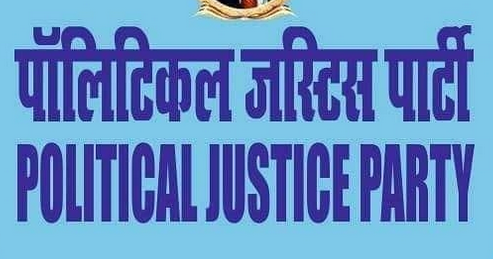Amid rising incidents of caste-based discrimination, gender violence, and social inequality, the Political Justice Party (PJP) has sent a comprehensive memorandum to Prime Minister Narendra Modi, demanding urgent institutional reforms to prevent atrocities against Scheduled Castes (SCs), Scheduled Tribes (STs), and women.
The memorandum, signed by PJP Founder Dr. B.P. Ashok and Party President Rajesh Siddharth, highlights alarming data from the National Crime Records Bureau (NCRB) 2023 report, supported by serious judicial observations from the Supreme Court and High Courts across the country.
Rising Atrocity Statistics
- 59,311 cases of atrocities against Scheduled Castes, with Uttar Pradesh, Bihar, Rajasthan, and Madhya Pradesh reporting the highest numbers.
- 10,064 cases of crimes against Scheduled Tribes, mainly from Madhya Pradesh and Odisha.
- Over 445,000 crimes against women, including domestic violence, sexual abuse, and trafficking.
- Conviction rate under the SC/ST Atrocities Act remains below 30%, with over 90% of cases pending trial.
Serious Judicial Concerns
The party emphasized that multiple judgments by top courts underscore a critical truth: punitive laws alone are not enough. Without awareness, community participation, and accountability, the cycle of violence cannot be effectively broken.
Key Strategic Proposals
The memorandum proposes a comprehensive, preventive, and community-driven model, with specific roles for different sectors:
1. Educational Reforms
- Introduce curriculum focusing on equality, constitutional values, and anti-discrimination principles.
- Organize monthly awareness sessions on SC/ST laws, POCSO Act, and the Domestic Violence Act.
- Establish school-level grievance redressal systems with administrative support.
2. Panchayat & Local Governance
- Conduct quarterly public hearings on caste/gender violence.
- Provide self-defense training and legal literacy for SC/ST and marginalized communities.
- Appoint a Social Justice Monitor at every panchayat level.
- Implement an “Atrocity-Free Panchayat Index” with reward-based incentives.
3. Religious & Spiritual Leadership
- Encourage priests, monks, imams, and clergy to promote gender respect and caste harmony in their discourses.
- Launch a “Faith for Equality” campaign, to challenge regressive and discriminatory interpretations in religion.
4. Media & Digital Outreach
- Utilize MyGov, Doordarshan, and All India Radio to share inspirational stories of justice, leadership, and empowerment.
- Promote community radio in local languages for legal rights awareness in rural areas.
Implementation Framework
- Coordinated efforts from the Ministries of Social Justice, Women & Child Development, and Panchayati Raj.
- Use of SCSP/TSP budget allocations for educational and preventive programs.
- Formation of a National Social Justice Council, involving retired judges, grassroots activists, and civil society organizations.
Conclusion
The Political Justice Party has emphasized that caste and gender-based violence is not merely a law-and-order issue—it is deeply embedded in societal attitudes, traditional structures, and institutional failures.
The party has called upon the Central Government to enact and enforce this inclusive and preventive framework in alignment with the constitutional principles of equality, liberty, fraternity, and dignity.
